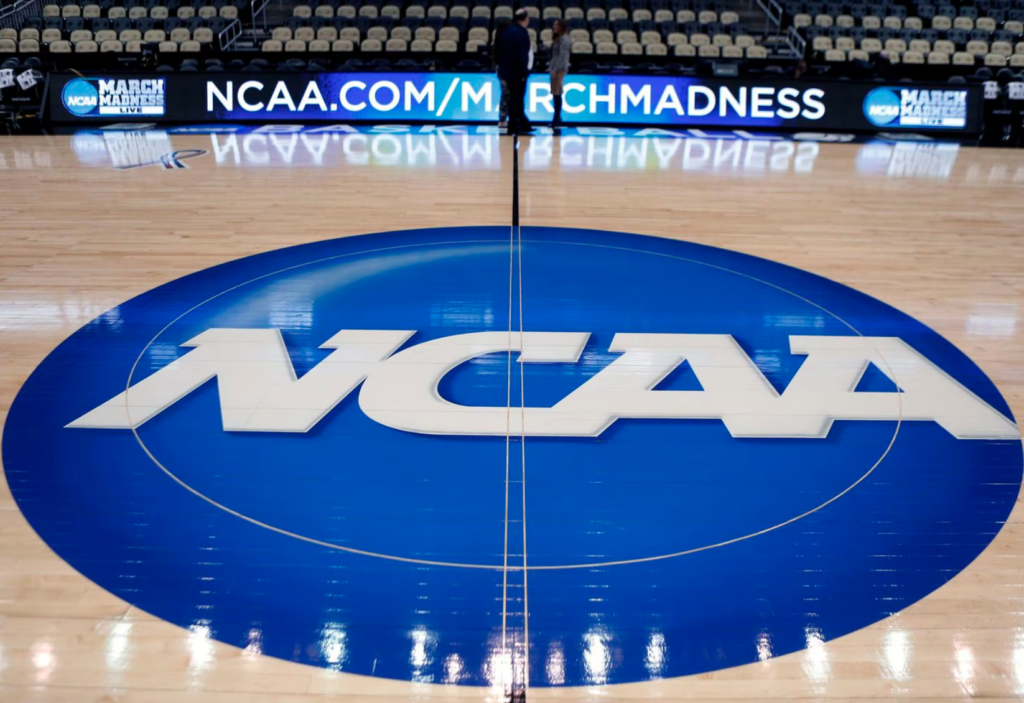By Gaby Sferra
As Name, Image, Likeness (“NIL”) laws beginning to take effect, the college sports scene has been transformed, allowing student-athletes to profit off their name through endorsements and sponsorships.
A look into the effects NIL has had on individual athletes is presented in an article profiling Armando Bacot. Bacot was a junior at the University of North Carolina-Chapel Hill (“UNC”) for the 2021-2022 season, and the team made it to the Championship Game, before losing in the finale.
Bacot, a leading scorer on the team, anticipated joining the NBA Draft after the 2022 season. UNC Athletic Director Bubba Cummingham summarized “Usually, at the end of a Final Four run, your best players leave.”[1]But Bacot reversed course, after the seminal 2021 Supreme Court case National Collegiate Athletic Association (“NCAA”) v. Alston permitted payments to student-athletes, ending the centuries-long tradition of “amateurism” in the NCAA. “Nowhere else in America can businesses get away with agreeing not to pay their workers a fair market rate on the theory that their product is defined by not paying their workers a fair market rate,” Justice Kavanaugh wrote.[2]
Suddenly, the push to join professional leagues to make money was not as compelling. Bacot returned to UNC along with three other starters from last year’s team.

Critics of NIL laws notice disparate impacts on athletic departments, as sponsorships that helped fund college athletics are now sent directly to players, rather than to the school. Unsubsidized athletic departments take a toll on “less visible”[3] sports, despite the many successes of these teams. For example, at UNC, the women’s soccer team has won 21 titles, more than UNC’s men’s basketball, soccer, and football teams combined. Furthermore, “of the approximately 520,000 students currently competing in intercollegiate athletics, maybe 519,000 are making nothing at all.”[4] Syracuse University Coach Jim Boeheim criticized the NIL policy, accusing schools of buying their teams.[5] After negative outrcy, Boeheim clarified that he did not mean to insinuate the teams had violated NCAA protocols. In New York, Governor Hochul signed an NIL Law in November 2022.[6]
As the NCAA adapts to NIL policies, the organization has amended their bylaws to shift the burden of proof onto schools to prove that NIL communications and agreements did not violate NCAA policy.
In this new era of NIL and student-athletes, the fallout from Alston remains up in the air, as the dust has yet to settle. Balancing student-athlete payment for work with the widespread complications in allowing these agreements is likely to be a difficult challenge for universities moving forward.
[1] Bruce Schoenfeld, Student. Athlete. Mogul?, New York Times Magazine, Jan. 24, 2023, https://www.nytimes.com/2023/01/24/magazine/ncaa-nba-student-athlete.html?smid=em-share.
[2] NCAA v. Alston, 141 S. Ct. 2141, 2169 (2021).
[3] Bruce Schoenfeld, Student. Athlete. Mogul?, New York Times Magazine, Jan. 24, 2023, https://www.nytimes.com/2023/01/24/magazine/ncaa-nba-student-athlete.html?smid=em-share.
[4] Bruce Schoenfeld, Student. Athlete. Mogul?, New York Times Magazine, Jan. 24, 2023, https://www.nytimes.com/2023/01/24/magazine/ncaa-nba-student-athlete.html?smid=em-share.
[5] Rob Goldberg, Jim Boeheim Rips NIL Rules; Says Pittsburgh, Wake Forest, Miami ‘Bought’ Teams, Bleacher Report Feb. 5, 2023, https://bleacherreport.com/articles/10064259-jim-boeheim-rips-nil-rules-says-pittsburgh-wake-forest-miami-bought-teams.
[6] N.Y. Educ. Law § 6438-A (Consol. 2023).
